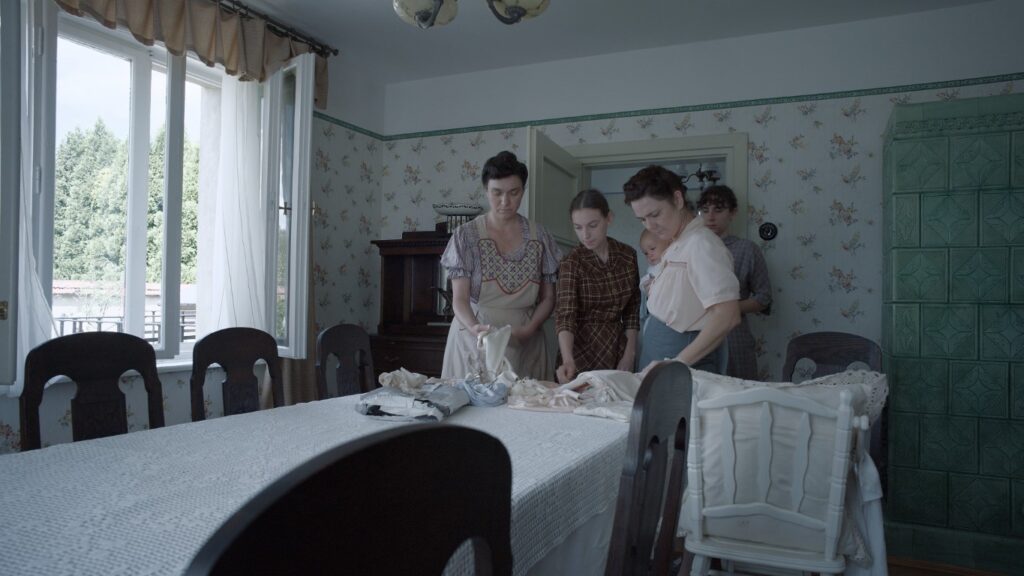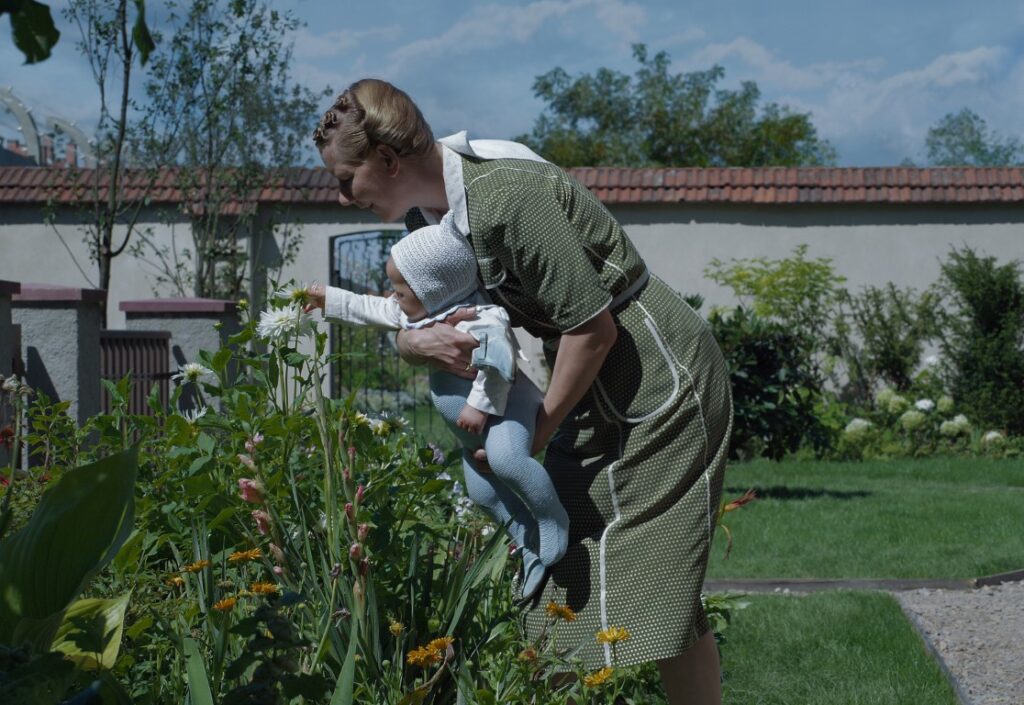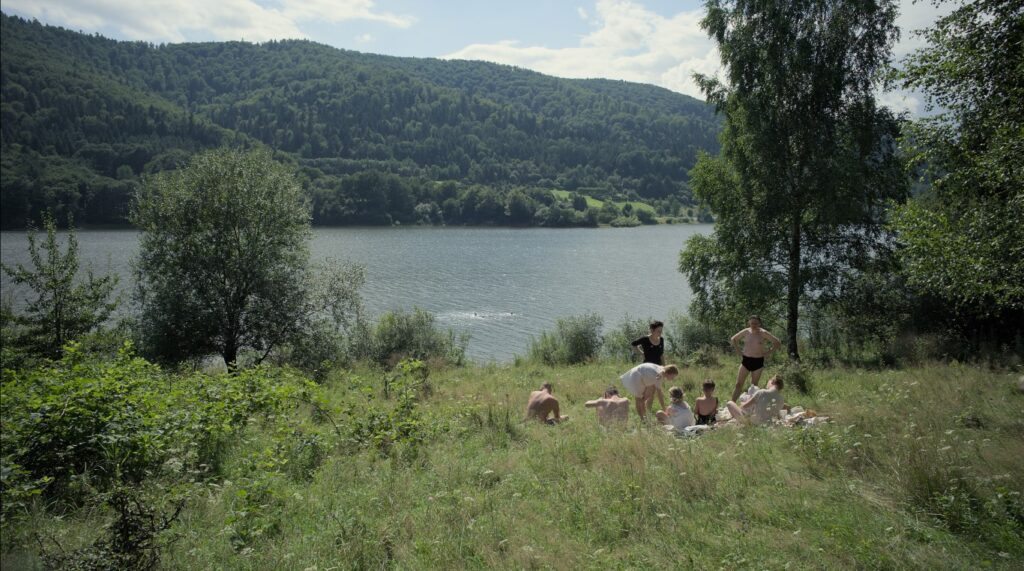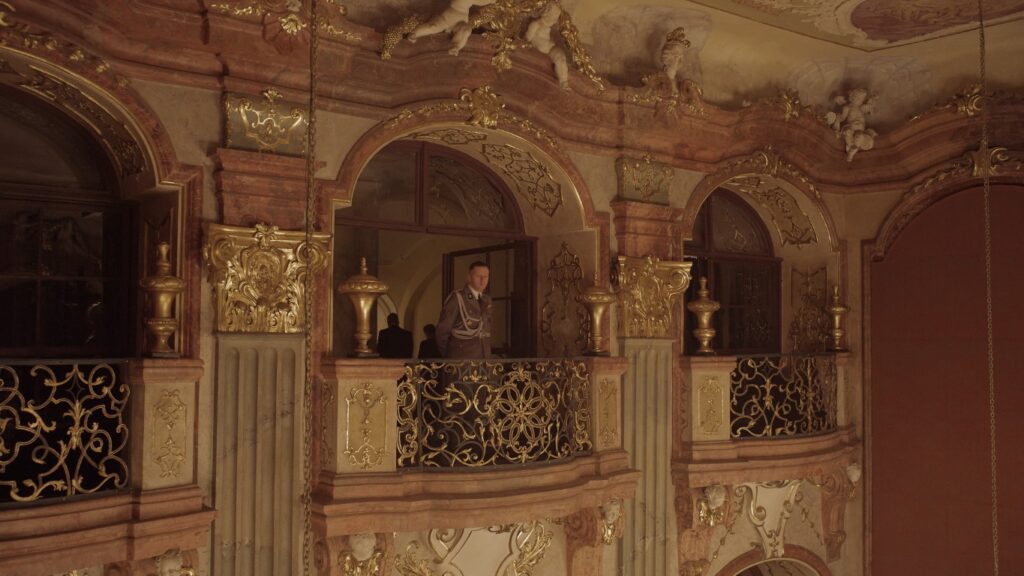Read also:
How to Watch FX Live Without CableHow To Watch AMC Without CableHow to Watch ABC Without CableHow to Watch Paramount Network Without CableThe German actor opens up about the painstaking process of filming Jonathan Glazer’s perverse Nazi dollhouse, and how guilt and atrocity can eat you alive.
In Jonathan Glazer’s The Zone of Interest, what is out of sight is out of mind, even if it’s not out of earshot. Adapted from the Martin Amis novel, Glazer’s first feature in ten years is notable for what it doesn’t show us, or rather, what its subjects refuse to see. Set in, and focused on, the palatial home of Rudolf Höss (Christian Friedel), the commandant of Auschwitz for much of its existence, the film turns its eye purely to the goings-on of the house — tending the large garden, picking out clothes, inviting family over for dinner. But their home is built just on the other side of the wall from the camp.
All the while, smokestacks billow with fumes that used to be people, and rifle shots interrupt every other sentence. All the while, Höss and his wife Hedwig (Sandra Hüller) go about the business of their day, ignorant, or at least doing their level best to ignore, the literal blood and sweat that goes into the hermetically-sealed paradise they’ve built for their family.
It’s a film steeped in aesthetic distance and emotional coldness, a challenge Friedel took to heart. A veteran of German stage and screen, Friedel is perhaps best known for his main role in the German historical noir series Babylon Berlin; but his history playing men ravaged by the vicissitudes of war has served him well. His Höss is a man of ruthless efficiency and inhuman denial, juggling the demands of his household with a clear sense of ambition towards the Fuhrer.
In time for its limited-release expansion, The Spool spoke to Friedel about the moral wrinkles and contradictions that went into taking on such a difficult role, what makes Rudolf Höss tick, and the ways the body and mind battle when it comes to acknowledging atrocity.
This interview has been edited for clarity and length, and contains some spoilers for The Zone of Interest.
How did you first get involved in the project?
I had to do a [self-tape] and describe myself and why I became an actor — without knowing the script or the potential role, only that it’s a new project for Jonathan Glazer. I had to decide whether to do it in German or English; I thought “Okay, it needs to be natural,” so I decided on German. Turns out I was the only person who made it in German. Maybe that was my door opener. But maybe the real door opener was [my role in] Michael Haneke’s The White Ribbon, a movie that Jonathan loves and was an inspiration for this film.
I met Jonathan for the first time in a pub in London together with his longtime friend and producer Jim Wilson, where he described his project and vision. He shared with me some really rare pictures of the family, his investigation, and the script. I was impressed. I didn’t know that the family lived so close to the camp. I wanted to be part of the project from the start; I’m a big fan of Jonathan’s even as far back as his music videos for Radiohead and Massive Attack.
I’m curious about the work it takes to get into the headspace of a complicated man like Rudolf Höss — a monster of his own making, but also someone Glazer views from a distance. You’re front and center of the story, but it’s not a character study as we’d normally see. Was it difficult to get into Rudolf’s head, explore his character deeply, when so much of the film is about everything around him, rather than things you can explicitly express through performance?
It was an intense challenge to create this character because we’re observing him. We follow a little part of his history, but it’s not a typical biopic. The challenge was to find a sense of normality in this character, to give such evil a human face. We had a lot of conversations about that.
We shot the film with this multi-camera system that allowed us to find or create that normality — it was a different process for me than other movies I’ve worked on. Sometimes you start with psychological things, and you read the biography and historical context and so on. But that wasn’t necessary so much for this project, because Glazer’s challenge was to be spontaneous, to be open, to figure out what’s going on and do variations. To be honest, when we started shooting, I had a little vision in my mind for how Rudolf would be. But we ended up creating the whole thing right in the moment on set.

How did that spontaneity play out when filming, especially with the multi-camera setup you mentioned? Did scenes play out longer, did you get to let them breathe?
We had all the time in the world, which was amazing. We shot maybe one or two scenes per day, and the set was prepared the morning we came to set so we could start immediately. Sometimes the first moment would be great, other times we would have to figure it out in the moment. For instance, in the dinner scene with the birthday cake, we had the chance to start with our dialogue, and then break it up and find new ways to get into new moments.
That approach allows you to follow your instincts in a way, rather than Jonathan directing us beat by beat. Sometimes the scenes had more blocking because it was important to follow the camera system that was set up around the house to shoot some possible variations. But we never rehearsed, just talked about the scenes. After that, we had all the time in the world to figure it out alone in the house, just with our colleagues. Sometimes we even shot scenes simultaneously in multiple rooms, or outside and inside at the same time. You could feel the reality of the scenes in that way.
One scene I had, the one with the barber, was not in the script — it was my first time with the barber, which was intense because I didn’t know what was going to happen. But I had to act as if it was a normal routine for Rudolf. I probably spent an hour alone with this barber, shaving my beard. That was crazy.

That sounds like an interesting opportunity to play off your costars, which brings me to Sandra Hüller, who plays your wife. What was it like working with her — building this fractious marriage in which each of you is playing your own kind of moral calculus?
I met Sandra years ago when we costarred in Jessica Hausner’s Amour Fou (2014). From the first moment I met her we had a connection and became friends; we had an energy together, and we shared the same thoughts. We’re not vain actors; in a way, we follow the vision of the director. And we’re curious to find new ways to create our characters. We had a lot of conversations about that, which was inspiring for me.
Sandra seems so fearless; for example, in the scene at the river where her character says I’m going and she’s staying there, we had a lot of variations on that conversation. She was so brave in approaching the scene, unafraid to dig into what’s going on with these characters or make mistakes. We had a lot of conversations, her and I and Johnathan because it was important with this method [of shooting] that we protect ourselves mentally. To know Sandra was there to talk to was so important. We had so many conversations to figure out the energy of this professional couple who loved each other in the past but now maintains this household. Do they laugh with each other? Do they cry? Our friendship and trust were so helpful in answering those questions.
Your dynamic is so interesting, especially those sweet conversations in the bedroom where you’re still in separate beds, but there’s still this intimacy.
Yeah.

Going back to Rudolf as a character, this is a movie about moral complicity and the extent to which perpetrators of evil turn a blind eye to it to keep their creature comforts. What was your understanding of him as you studied and prepared for the character? How did he justify what he did? What level of denial did he use to approach his job running Auschwitz?
That’s a good question; my understanding of Rudolf Höss was that he was a really good bureaucrat. He never thought he was doing terrible things, and would never say that he was wrong, at least until the Nuremberg trials. I listened to his voice on those tapes, but you’re not listening to the voice of a commandant in his prime; it’s the voice of a prisoner. He said that he had to do this, and wanted to do it in the best, most efficient way. It’s horrible to hear that, and that he never apologized or never said ‘I’m sorry.’ In his mind, I think he thought of these people as animals. It was like an industry, a farm for making money.
And yet he loves animals more than people because has that beautiful relationship with his horse.
He was interested in nature, and birds; he wrote a forward to a book of science for birds. And he loved his horse, maybe more than his wife or family. It’s really interesting to play those notes, where he thinks about nature, animals, then humans. That scene where I say goodbye to my horse is one I’m grateful for because that was another additional scene that was not in the original script. Jonathan, after seeing the first cut of the movie, said we need to see Rudolf say goodbye to his horse in a different way than he does his wife.
What’s truly important in his life is the lightness of nature, which he needs to contrast with the darkness of the camp. He needs that connection to the ground to forget all of the things he does. We are all masters of self-deception; for him, it was easy to ignore these atrocities. Showing that element was important for this character because we wanted to give him a human face, and not show him as a typical Nazi, an evil person we can look at and say, “Okay, it’s not me.”
There are moments where that self-deception breaks through in interesting ways — like the scene in the river where you’re bathing with your children, and you see bone fragments from the camp. That’s one of the few moments where the facade breaks and he’s panicked. What are you playing in that scene?
[Höss] knows exactly what happens with the ashes and bones, that they have to bring it to the water because there’s no space to hide them in the camp. But he forgets, or ignores it in this moment of vulnerability, and is suddenly reminded of it. For a moment, maybe for the first time, he realizes the dimensions of what he’s doing and wants to protect his kids from that.

And not to skip too far ahead, but there’s a moment in the final minutes of the film where it feels like the weight of everything finally expresses itself with Rudolf, so to speak. It quite literally comes out of his body.
I think the body tells the truth. Rudolf is fighting a battle of the body or soul against the mind. I was really afraid of doing this scene, honestly; it was the most horrifying scene in the script, but I felt the whole time that it was too important. Personally, I hadn’t thrown up in twenty-five years.
Congratulations.
Thank you [Laughs]. I realized that Jonathan was searching for the truth, and I had to find a way into it. We decided to do it almost like a fight like I’m fighting off the truth. We shot at night, and I had to do it for four hours, maybe thirty or forty variations. It was horrible in a way, but it was important for me to feel the body. Maybe the body wants to reject the man. One inspiration I took was the documentary The Act of Killing, because there’s a scene in which the perpetrator describes exactly what he does, and the body reacts similarly.
How does it feel to be on the other side of this process? How do you feel you’ve grown as an actor or artist?
This is one of the most important works of my career so far, next to The White Ribbon and 13 Minutes, where I played Georg Elser, the man who tried to assassinate Adolf Hitler. These three projects were so inspiring for me as an actor. More than that, the conversations with Jonathan were important as well; we’d talk about other movies, or his previous work, or his memories. I just had to listen.
To have this challenge to find the truth, and know we only observe the character through a window, is an experience I’ll never forget. I’m still processing it after playing him for two years; I need to shake it out of my mind and body. I learned a lot about myself, about this darkness inside all of us. Jonathan said to me, “There are two wolves inside of us: A good wolf and a bad wolf. And which wolf you feed the most will dominate you.”
The Zone of Interest premieres in Chicago and limited cities January 12, before going wide later this month.